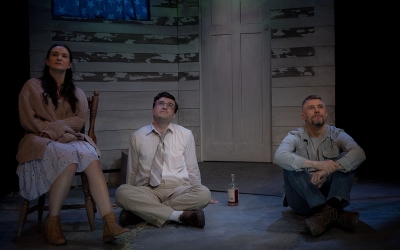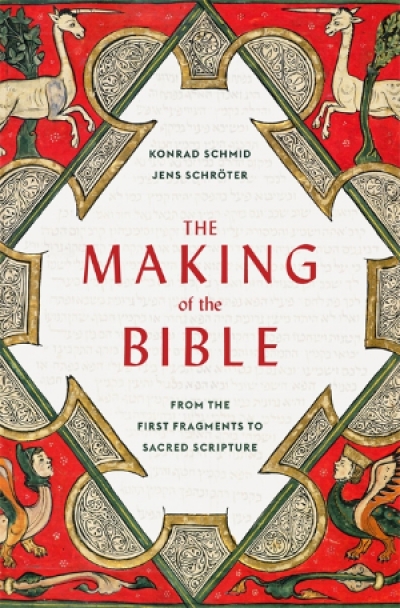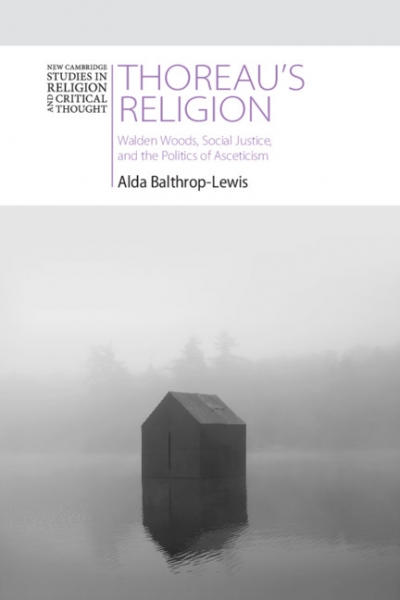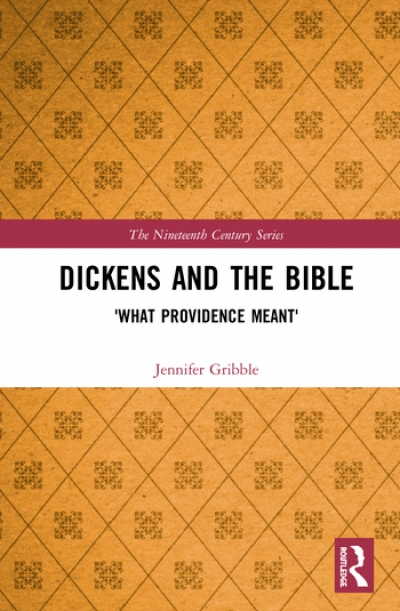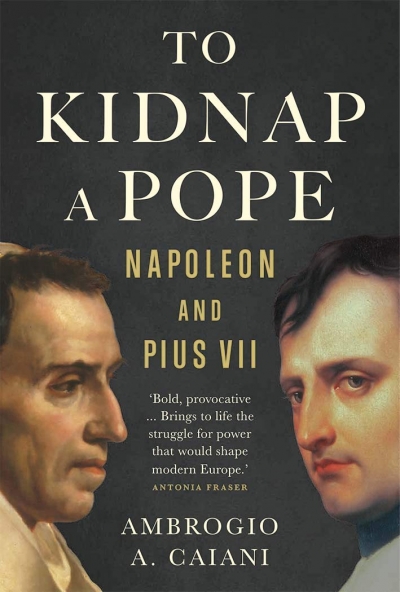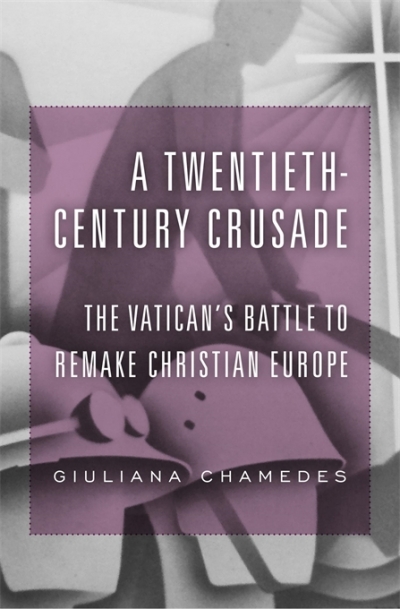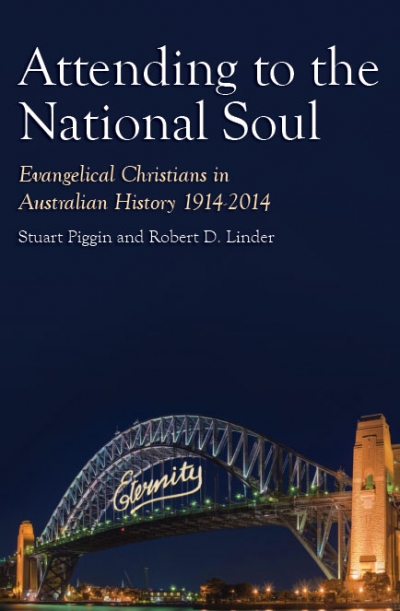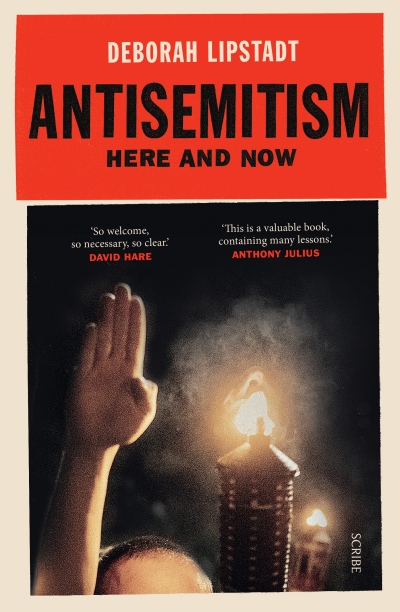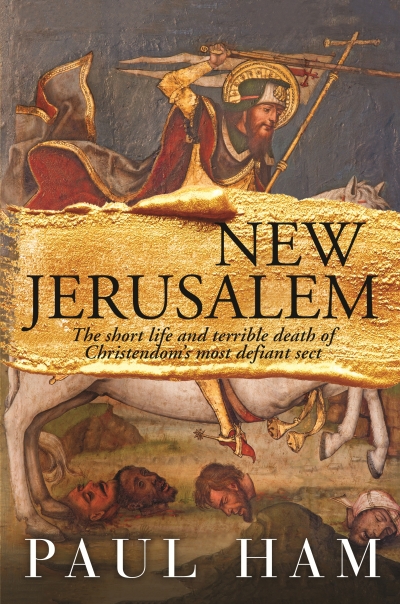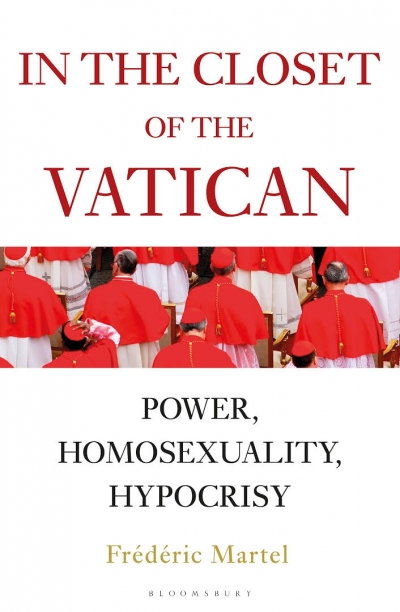Religion
Not long into Will Arbery’s Heroes of the Fourth Turning a character brings out an acoustic guitar and is asked to play a song. He chooses Townes Van Zandt’s ‘Nothin’’, a melancholy ballad pulled from the annals of American folk music. When it was released in 1971, many assumed it represented Van Zandt’s struggle with drug addiction. In fact, as he explained two years before his death, the song was inspired by Nikos Kazantzakis’s The Last Temptation of Christ, a novel banned by the Catholic Church in 1955 for representing a Christ figure prone to human fallibilities.
... (read more)The Making of the Bible: From the first fragments to sacred scripture by Konrad Schmid and Jens Schröter, translated by Peter Lewis
The Bible is a collection of books with a long history. Not surprisingly, there is little agreement as to precisely which books it contains and what their collective importance might be. In The Making of the Bible, a distinguished Old Testament scholar, Konrad Schmid, and an equally prominent New Testament specialist, Jens Schröter, have combined forces to produce a volume (elegantly translated from the German by Peter Lewis) that outlines how different forms of the Bible came into being. Their focus is historical and philological rather than theological or literary. Yet the story they tell is engrossing: that of an unstable world needing to attend to the values of God’s kingdom. They help a non-specialist reader appreciate the fascinating diversity of ways in which the Bible’s message was regularly reinterpreted in a changing political situation.
... (read more)Thoreau’s Religion: Walden Woods, social justice, and the politics of asceticism by Alda Balthrop-Lewis
Towards the end of Thoreau’s Religion, Alda Balthrop-Lewis, an academic at Australian Catholic University, evokes an experience each of us has likely had in some form. The sight of a rainbow or the sound of a bird amazes you so much that you simply have to share it. Delight inspires you to share with others, so that it may alter them as well as your relationship bringing you, collectively, into a more intimate and responsible accord with the freshly encountered world. In a book about Henry David Thoreau (1817–62), the explicit aim of such a passage is to convey that, contrary to the inherited belief that Thoreau was a dour ascetic, he actually embraced delight, and that, in this spirit of delight, his writing might be understood as a type of exhortation to ‘Look!’.
... (read more)Dickens and the Bible: ‘What providence meant’ by Jennifer Gribble
It is well known that Charles Dickens draws an analogy between the novelist as creator and the Creator of the cosmos: ‘I think the business of art is to lay all [the] ground carefully, but with the care that conceals itself – to show, by a backward light, what everything has been working to – but only to suggest, until the fulfilment comes. These are the ways of Providence, of which ways, all art is but a little imitation.’ However, it is not generally recognised that Dickens supported this analogy with a deep knowledge of the Bible. Instead, the thinking that permeates his works is often seen as a facet of secular humanism. John Ruskin, for example, commented that for Dickens Christmas meant no more than ‘mistletoe and pudding – neither resurrection from the dead, nor rising of new stars, nor teaching of wise men, nor shepherds’.
... (read more)To Kidnap a Pope: Napoleon and Pius VII by Ambrogio A. Caiani
To kidnap one pope might be regarded as unfortunate; to kidnap two looks like a pattern of abusive behaviour. Ambrogio A. Caiani tells the story of Napoleon’s second papal hostage-taking: an audacious 1809 plot to whisk Pius VII (1742–1823) from Rome in the dead of night and to break his stubborn resolve through physical isolation and intrusive surveillance.
... (read more)A Twentieth-Century Crusade: The Vatican’s battle to remake Christian Europe by Giuliana Chamedes
The papacy’s role in international affairs is often underestimated. A recent example is Pope Francis’s participation in the 2015 negotiations leading to a détente between Cuba and the United States. It helped, of course, that Barack Obama was president and that Raúl Castro had replaced his brother Fidel in Havana; but it was Francis, building on the work of his predecessors who had maintained continuous relations with the Castro regime, who brought the two sides together, and who persuaded the United States to drop its sanctions against Cuba.
... (read more)Attending to the National Soul: Evangelical Christians in Australian history 1914–2014 by Stuart Piggin and Robert D. Linder
Eighty-one per cent of American evangelicals are said to have voted for Donald Trump in the 2016 presidential election and, with little variation, plan to do so again in November 2020. That number sparked four years of intense debate and a slew of books, signalling the latest chapter in a fascination with evangelicals and politics dating back to at least 1976 when Newsweek proclaimed the ‘Year of the Evangelical’ upon Jimmy Carter’s election. Whatever one wonders about just who counts as an ‘evangelical’ and what might be said about the broader movement in the age of hyper-partisanship, it has certainly been a boom time for histories of evangelicalism in the United States.
... (read more)Holocaust historian Deborah Lipstadt is renowned as the woman who defeated David Irving in court after he sued her for describing him as a Holocaust denier. Her portrayal by Rachel Weisz in the film Denial (2016) ensured that Lipstadt and her landmark victory achieved even wider celebrity ...
... (read more)The link between fundamentalist religion, violence, and madness is well established. The conviction of absolute truth becomes especially toxic when believers are convinced that the end of the world is nigh. This is exacerbated in times of major socio-economic change and political instability, such as during the Protestant Reformation ...
... (read more)In the Closet of the Vatican: Power, homosexuality, hypocrisy by Frédéric Martel
Almost from the day Jorge Mario Bergoglio was elected Pope Francis in 2013, he began denouncing fake devotees, whited sepulchres, and hypocrites at the Vatican. His targets, as Frédéric Martel makes clear, are the high-ranking clergy who vehemently condemn homosexuality while themselves often ...
... (read more)

